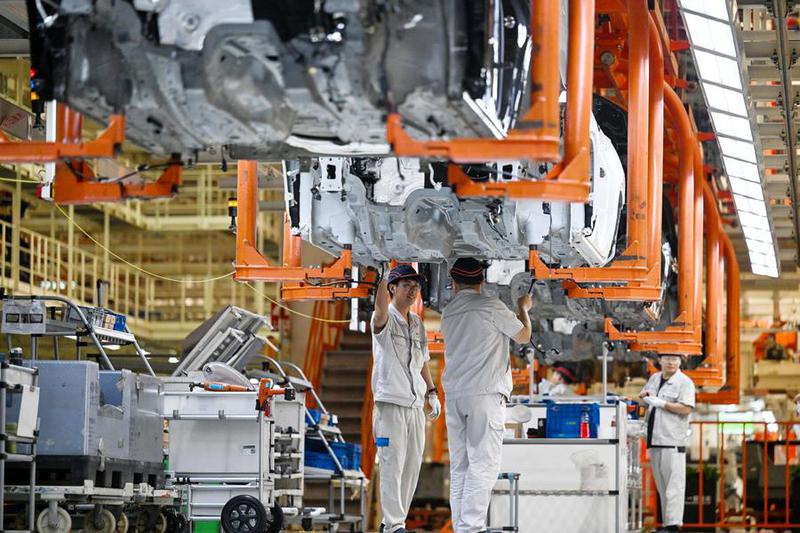
Volkswagen is driving home its localization strategy in China as it races to catch up with local rivals and defend its long-standing lead among international brands in the world's largest automotive market.
"Our top priority is bringing our 'In China, for China' strategy to life and fulfilling our commitment to Chinese customers," said Robert Cisek, CEO of Volkswagen Passenger Cars Brand China.
Cisek took the helm of the brand's operations in July, after serving six months as executive vice-president for products and strategy at Volkswagen Group China.
READ MORE: Foreign brands double down on smart driving
He outlined an ambitious road map that includes launching 21 new energy vehicle models by 2027 and 31 by 2029, spanning battery-electric, plug-in hybrid, and extended-range vehicles.
"Our NEV platforms leverage a multi-traction strategy to deliver exactly what customers need. At the same time, we maintain the flexibility to adapt to market dynamics," he said.
Volkswagen's "In China, for China" strategy was launched in 2023, after the German carmaker realized that its Europe-developed ID. series EVs had failed to capture the enthusiasm of Chinese car buyers as its gasoline models once had.
The company's struggle mirrored a broader challenge facing most international marques.
With the exception of Tesla, many foreign automakers were left in the dust in China's fast-evolving electric vehicle segment, where homegrown brands such as BYD, Geely, XPeng and Leapmotor now dominate.
The shift marked a turning point for global carmakers, underscoring the importance of local innovation and faster product development cycles.
To regain momentum, Volkswagen has made local R&D the cornerstone of its China strategy.
The Volkswagen (China) Technology Company, established in 2023 in Hefei, Anhui province, has become the group's largest R&D facility outside Germany, employing about 3,000 engineers.
The center coordinates R&D across Volkswagen's joint ventures and subsidiaries — including FAW-Volkswagen, SAIC Volkswagen and Volkswagen Anhui — and collaborates with Chinese technology firms such as XPeng for software and electronic architecture and Horizon Robotics for automated driving.
Cisek said the VCTC allows Volkswagen to operate at what he called "China speed", cutting time-to-market for new technologies by more than 30 percent while optimizing costs by about 40 percent.
Among VCTC's biggest achievements are the China Main Platform (CMP) and the China Electrical Architecture (CEA), which will underpin a new generation of intelligent connected vehicles starting in 2026.
Three models based on the China-specific platforms — the ID. AURA, the ID. ERA, and the ID. EVO — made their debut earlier this year at the Shanghai auto show, which analysts see as a sign of Volkswagen's renewed push to reclaim its leadership in the market.
"The next generation of intelligent connected vehicles from 2026 will reflect our deeper integration into the local ecosystem, through local technological innovations and a strong NEV focus," Cisek said.
He emphasized, however, that the carmaker's drive toward electrification and connectivity would not come at the expense of its traditional strengths.
ALSO READ: Green shoots of recovery for global brands in China
"We always stay true to our core DNA of safety, quality and reliability, while advancing our technologies and improving our products for a fun drive," he added.
Cisek said Volkswagen's product road map to 2030 is already defined, focusing on flexible powertrains — from internal combustion to hybrid and pure electric — to meet China's diverse customer needs.
Volkswagen's long-standing partnerships with SAIC and FAW remain central to its strategy. Volkswagen Anhui — its first joint venture majority-owned by the group — will launch three all-new ID. UNYX models starting from 2026.
"We want to deliver high-quality products with superior reliability and safety, at the right time and at competitive cost," he said. "Our ambition is clear: to remain the No 1 international auto brand in China. The 'In China, for China' strategy is the key to achieving this."
Contact the writers at lifusheng@chinadaily.com.cn


